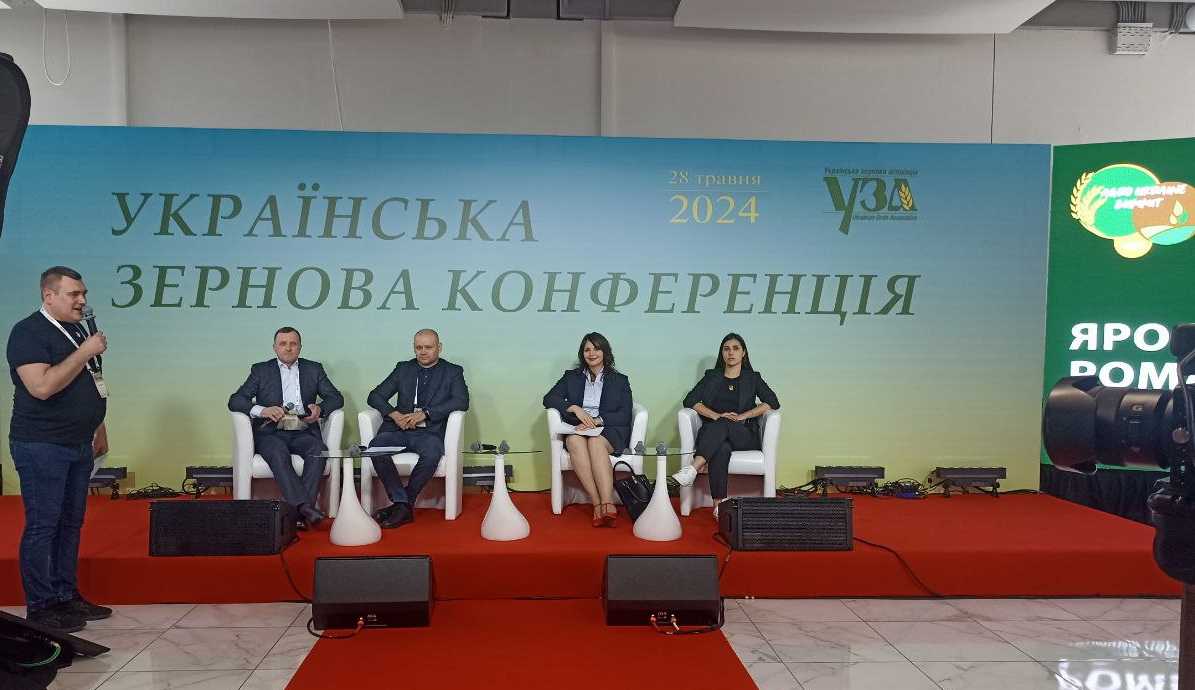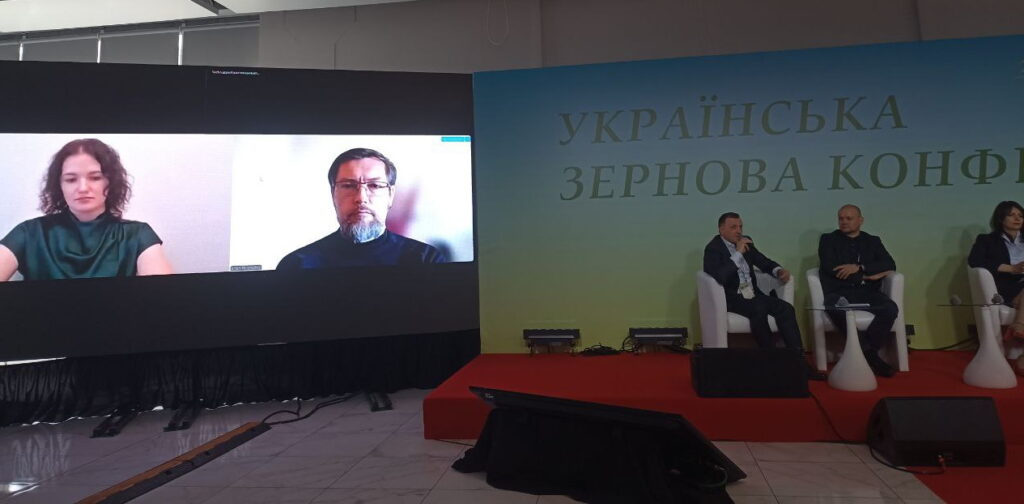
EUCON Legal Group co-organized Ukraine’s largest agricultural forum, the GRAIN STORAGE FORUM + AGRO UKRAINE. On May 28, 2024, EUCON initiated a panel discussion titled “War and Tax Maneuvers in Ukraine” as part of the forum.
During the panel, participants discussed the issues of the business community support and protection, the impact of the Bureau of Economic Security (BES) on the business community, and the most pressing issues for taxpayers in the context of Controlled Foreign Companies (CFCs). Valuable recommendations were also provided for Ukrainian tax residents on avoiding potential risks and effectively managing tax obligations in the current challenging environment. Special attention was given to strategic approaches to ensure stability and transparency in interactions between the business community and the state.
The panel discussion was moderated by Yaroslav Romanchuk, Managing Partner of EUCON Legal Group. In his opening remarks, Yaroslav emphasized the importance of this topic in the context of the current wartime realities, highlighting the need for thorough examination and discussion.
Dmytro Verbytskyi, Deputy Prosecutor General of Ukraine, emphasized in his speech that the Office of the Prosecutor General is doing everything possible to ensure effective protection of entrepreneurs. The Office actively collaborates with business associations and the Business Ombudsman Council, organizing joint meetings to address business issues.
Mr. Verbytskyi announced the creation of the Department of Criminal Policy and Investment Protection within the Office of the Prosecutor General. This department is focused on assisting reputable entrepreneurs who face pressure from law enforcement agencies. He also mentioned that in order to reduce the pressure on businesses, standards for prosecutors’ activities have been developed to regulate their work, and prosecutors are becoming more open to entrepreneurs.
Regarding the work of the Bureau of Economic Security (BES), Mr. Verbytsky noted that its key task is to assist reputable businesses and eliminate unscrupulous market participants.
“If you encounter problems, you can always reach out to us, and we will listen and help,” stressed Dmytro Verbytsky.
Tetiana Korotka, Deputy Business Ombudsman, presented the findings and observations of the Business Ombudsman Council based on complaints regarding the tax service. She reported that over the years of the Business Ombudsman Office’s operation, 13,000 complaints have been reviewed, and 24 billion hryvnias of working capital have been returned to businesses.
Korotka noted that recent observations show a decrease in the blocking of tax invoices, but at the same time, there has been an increase in the number of tax audits. The Business Ombudsman Council conducted several investigations into tax audits, revealing serious trust issues between the state and the business community. She pointed out that the number of appeals exceeds the number of tax audits conducted, with the state’s effectiveness in this area being only 1%.
To improve the situation, Tetiana Korotka proposed focusing on three areas: studying judicial practice, where the state and state bodies should thoroughly analyze judicial practice for better understanding and consideration of court decisions in their activities; applying European integration experience, which involves providing taxpayers with advice on possible mistakes; and implementing the mediation factor, where the use of mediation in the tax sphere can reduce conflict and increase the efficiency of tax dispute resolution.
Halyna Yanchenko, Member of the Parliament and Chair of the Temporary Special Commission on Investor Rights Protection, emphasized in her speech that the work of the Parliamentary Special Commission on Investor Rights Protection is focused on addressing high-profile, unjust cases as well as systemic violations. “Over the four years of the commission’s existence, investment projects worth 22 billion hryvnias have been unfrozen,” noted Ms. Yanchenko.
Galina Yanchenko also informed that one of the most common problems faced by investors was raiding, but after 2022, another issue came to the forefront – pressure from tax authorities, and in the past six months, a new threat has emerged – pressure from the law enforcement agencies.
“During the war, the state should function as a service, responding to the needs of a business community, not as a punitive body,” emphasized Galina Yanchenko.
Anton Polianychko, attorney-at-law, co-head of the tax practice at the EUCON Legal Group, highlighted the importance of three key areas that need attention to ensure the effective operation of the Bureau of Economic Security (BES) and improve interaction between the state and the business community: decriminalisation of economic crimes committed before the full-scale invasion; the introduction of legislative mechanisms for guaranteed deferral of tax obligations, which will help businesses better plan their financial resources and ensure stability in difficult economic conditions; and the creation of a specialized judicial system to consider all tax-related cases – administrative, criminal, and cases regarding the responsibility of tax officials and law enforcement officers. The presence of such a judicial system would ensure prompt and impartial consideration of tax disputes, as well as increase the accountability of law enforcement and tax authorities for their actions.
In his speech, Anton Polyanichko also touched on the issue of controlling foreign companies (CFCs) and outlined the most pressing issues for taxpayers. In particular, the speaker emphasized that only fines for non-submission of reports have been postponed, but not the possibility of conducting inspections and determining tax liabilities. Mr Polyanichko also noted that if the profit of a CFC is not taxed in Ukraine as undistributed dividends, this does not mean that funds spent from the CFC’s account in favor of individuals cannot be taxed as a fringe benefit. In his opinion, the only way to get rid of the obligation to report on CFCs is to change tax residency, to which the state is practically pushing Ukrainians.
Inha Livandovska, head of the tax practice of the Warsaw office of the EUCON Legal Group, emphasized that it is important for Ukrainian residents to understand their tax obligations and potential risks and provided several recommendations on how to avoid them. Specifically, it is necessary to familiarize oneself with the provisions of double taxation avoidance agreements between Ukraine and the countries where income is received; it is necessary to submit certificates of your tax residency in all places where you receive income to apply the provisions of double taxation avoidance agreements; it is important to keep track of the deadlines for submitting tax declarations and timely provide all necessary documents; and she recommended seeking advice from tax consultants or lawyers specializing in international taxation to establish residency.
